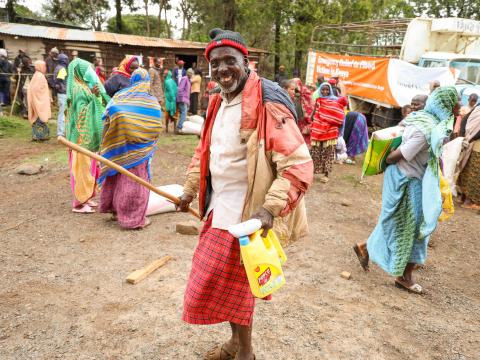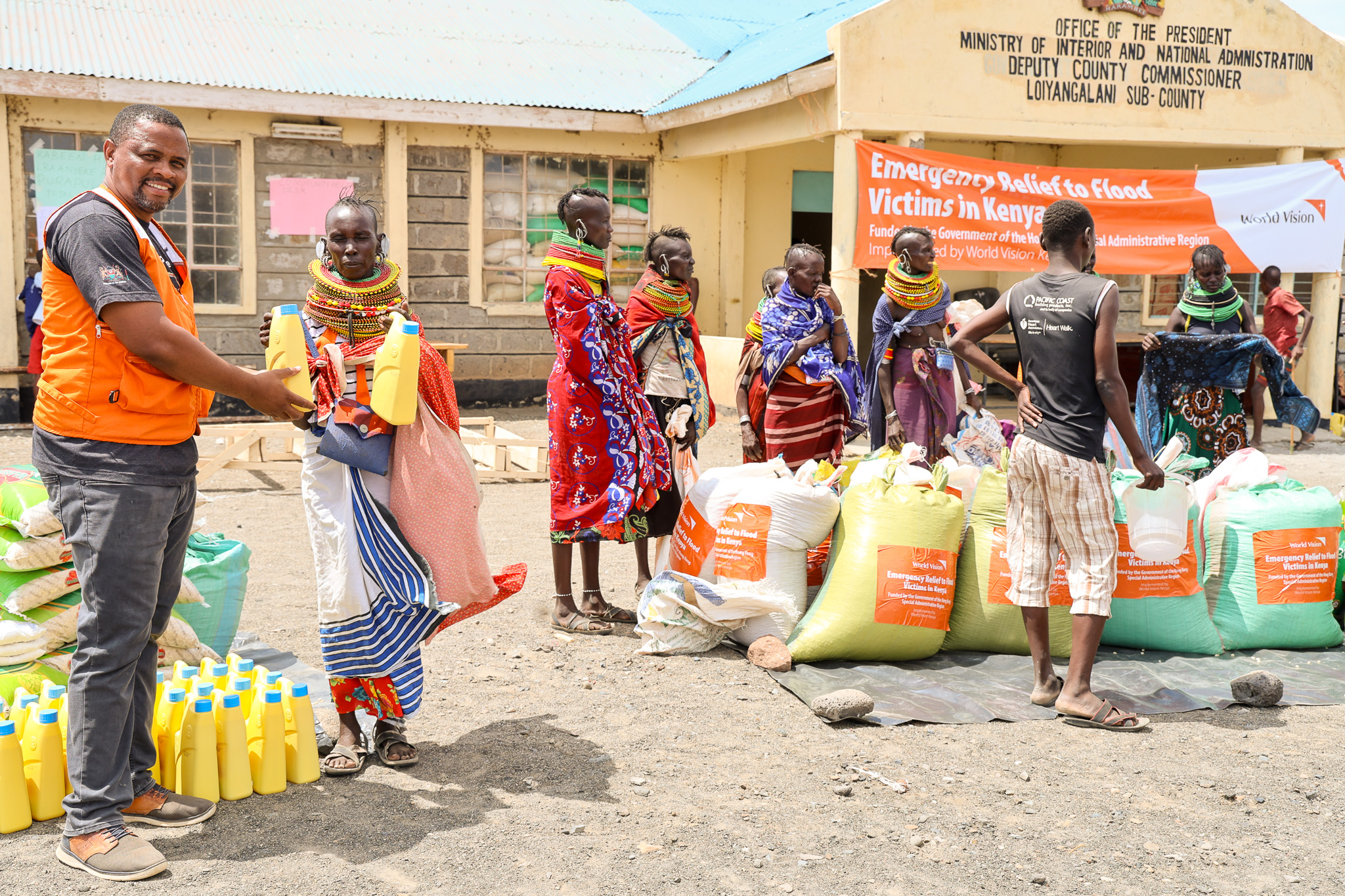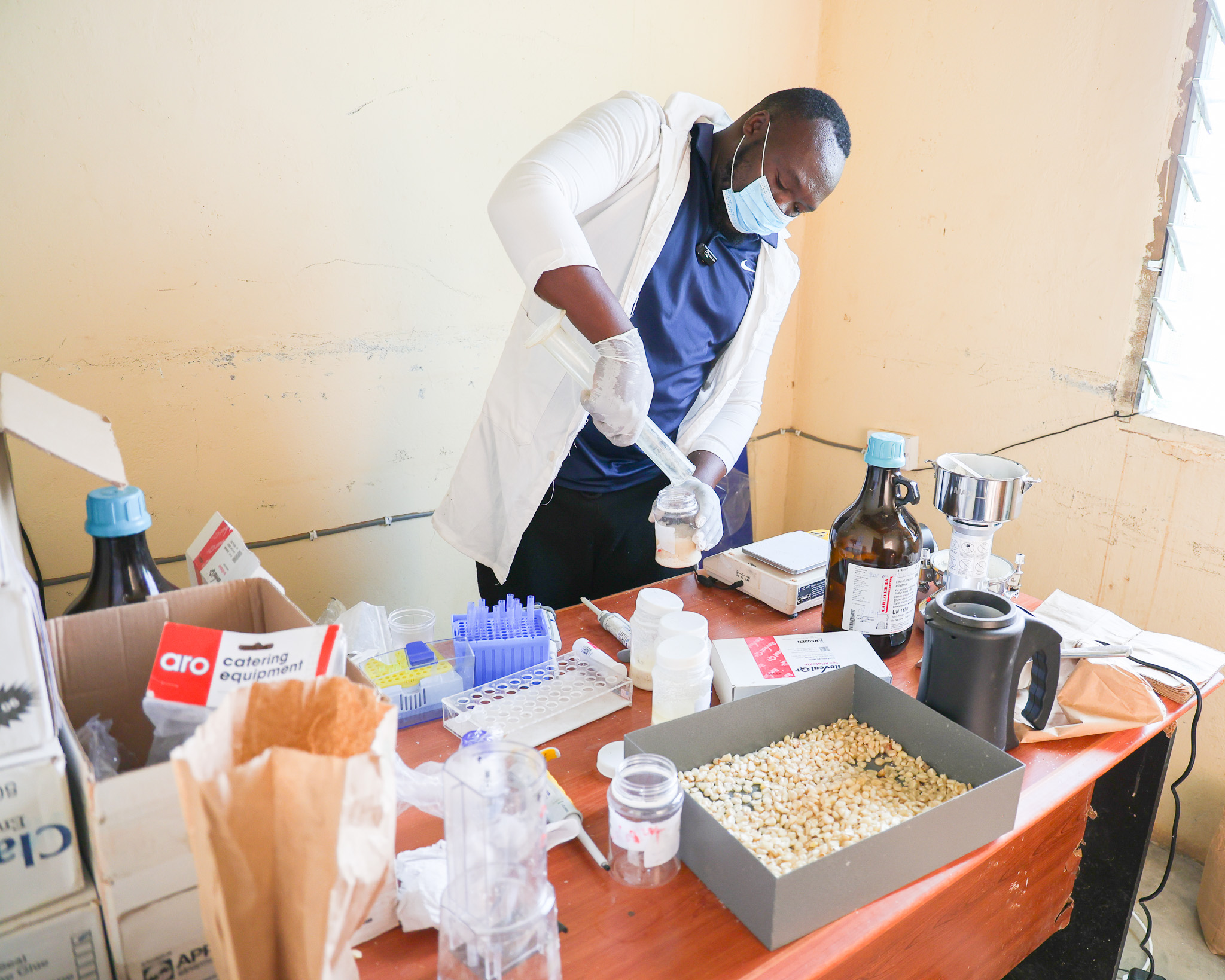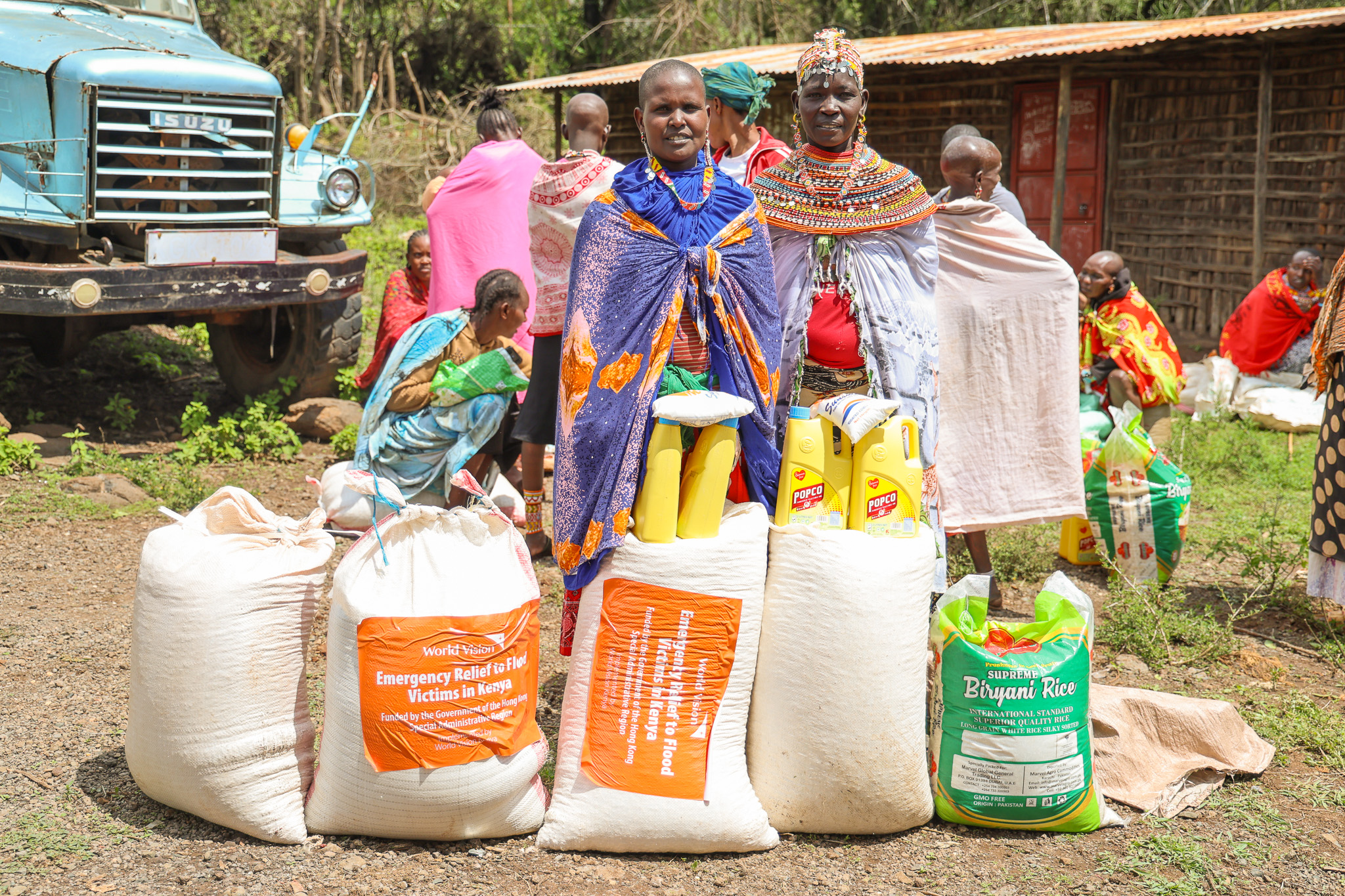Hope for Flood-Affected Families in Loiyangalani, Marsabit County.

The March-April-May (MAM) 2024 heavy rains severely impacted Marsabit County in northern Kenya, with Loiyangalani sub-county bearing the brunt of the flooding. According to the National Disaster Management Authority (NDMA) and the United Nations Office for the Coordination of Humanitarian Affairs (UNOCHA), the floods displaced 6,183 people from 1,066 households and claimed approximately 160 livestock, primarily goats and sheep.
Although the heavy rainfall has subsided, its impact continues to affect livelihoods in Loiyangalani. Damaged road infrastructure has led to increased food prices and transportation challenges, making it difficult for many households to afford basic necessities.
In response, World Vision Kenya, with support from The Government of Hong Kong Special Administrative Region (SAR) Disaster Relief Fund Advisory Committee, has provided emergency humanitarian aid to the affected households. The World Vision Kenya response team distributed essential relief items to 1,066 households across 16 villages in Loiyangalani Sub-County, including Elmolo, Yaal, Soit, South Horr, Arapal, Gas, Larachi, Kurungu, Loiyangalani town, Olturot, Moite, Civicon, Gatab, Arge, Daakaye, and Kanakorot.
The relief items included food items such as maize, beans, green grams, rice, salt, and cooking oil, while non-food items included water jerrycans, buckets, WASH and dignity kits for children to meet lifesaving basic needs. Each family received about 108kgs, beans 33kgs, rice 54kgs, green grams 16.5kgs, beans 6kgs, salt 3kgs and cooking oil 18litres.
Additionally, families received essential non-food items, including water jerrycans, buckets, and WASH and dignity kits for children.

To ensure food safety, World Vision partnered with the Marsabit County government to test the maize and rice for moisture content and aflatoxin levels. After confirming acceptable aflatoxin and moisture levels, Ezekiel Mogaka, the Marsabit County Public Health Officer and Food Quality Analyst certified that all relief food was fit for human consumption.

The relief effort also specifically targeted 1,500 children, providing dignity kits to 750 girls and 750 boys. According to Moshe Cosmas, the flood response project officer in Loiyangalani, this aid is expected to sustain affected families for three to six months while helping stabilize local market prices.

Kelai Loljuk, a community member, described the World Vision relief aid as "early Christmas" for their community. The initiative has brought renewed hope to the affected families, with some noting they can now redirect funds previously needed for food to other essential needs such as school fees. This humanitarian response, made possible through the Hong Kong SAR government's support, exemplifies how collaborative efforts can help communities rebuild and restore hope in times of crisis.
By Jared Ontobo, Emergency Communications Specialist, World Vision Kenya
#EmergencyRelief #FoodDistribution #RebuildingLives #ImprovedNutrition&Livelihoods